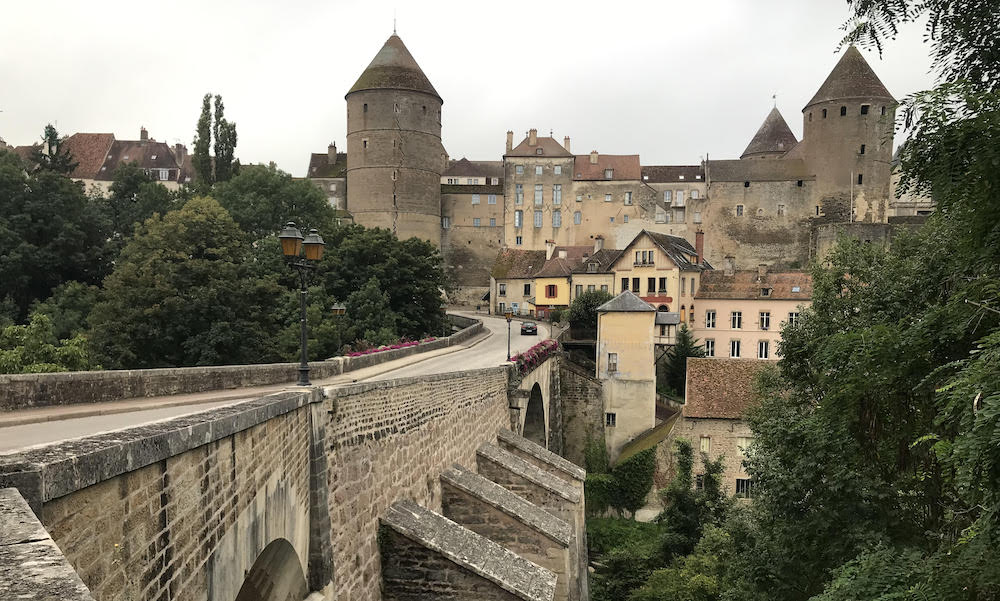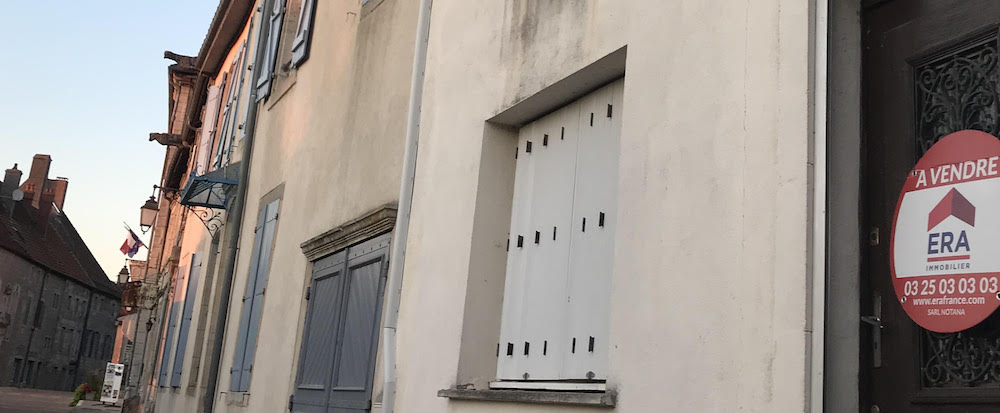(Editor’s note: This post on moving to France is the second in a continuing series looking at the best countries in Europe for American expats. You can read the introductory post here. You can read Pt. 1 here.)
If you have driven around France much, you may have noticed all those prefab houses and apartments that seem to be popping up like mushrooms all around the countryside. Expats typically don’t opt for buildings constructed of plaque de plâtre (plasterboard) and tôle ondulé (corrugated sheetmetal), but an alarming amount of French people select these residencies over historic domains.
Makes you kinda wonder if you are making a mistake ogling those rustic stone buildings. Especially since they seem to be selling pretty low.
I asked my French friends what the deal is.
Their answer: Retirees in France don’t earn enough from their pensions to maintain their dwellings (remove asbestos, water damage, tacky wallpaper). Stay with me, because you can use this to your advantage. Fast forward: The owner dies. If there are multiple heirs, things get messy. Inheritance taxes are high; the estate ends up in probate, blah, blah, blah.

The new home wins
You see, In France, your dog can’t inherit your assets. Children have automatic rights. Legal problems drag on. Once the real estate is finally freed of restrictions and makes it onto the market, it’s pretty run down. Locals compare the expenditure of time/income on an old house to the price of a custom-built home.
The new home wins.
Here is your chance to get that fixer-upper. For example, I recently visited the childhood home of a neighbor. It is a rustic stone farmhouse complete with an amazing wood beam, multi-floor barn. The old dairy section is paved and has enough room to park a car collection. It has enough land to plant fruit trees and enough private parking in front to park at least six cars. Someone could easily turn it into a guest house. But, if you miss the window of opportunity and nobody shows up in time to buy the house, here’s what oftentimes happens: Inheritors abandon their right to the legacy.
Come with a plan; leave with a property
Here is where it gets interesting.
Oftentimes the ownership is then transferred to the municipality after officials conduct an investigation and produce a report proving proof of abandonment. In my town, there are old barns, convents, bourgeois homes, renaissance mansions and a super-cute two-story tiny home made of stone with a nice garden that have been transferred in this manner.
The town hall (or municipality):
• rents a barn to a local farmer.
• stores equipment in an old convent.
• turned a bourgeois home into a museum with the help of the historic society volunteers, who did all the work.
• uses a church for concerts.
• lets a huge Renaissance building sit there because it’s too costly to maintain.
That super cute cottage is still up for grabs. (Remember: it’s in ruins – we’re talking dirt floors/needs sewer lines.)
Some buildings are way too expensive to renovate, such as the local church. Yes, it is the domain of the town hall, not the local church dioceses; but that is another story, one that requires a history lesson about the French Revolution.
For those of you looking to start an artist’s residency or yoga retreat (insert your idea here), check with the local mayor’s office in any French town for a list of properties. Get ready to deal with French bureaucracy: The mayor will expect you to submit a dossier explaining your proposal. It will go before a committee.
TIP: Your idea will get noticed if it could somehow improve the town. Maybe they need a restaurant, would like to replant abandoned vineyards, or open a center for cyclists/kayakers/hikers/rock climbers.
Get your plan out there and see what happens. So, don’t feel too bad if the locals don’t want that broken down barn, chateau ruin or abandoned cottage. It can be yours for the taking (or maybe renting).
––––––––––
Read more about Alice’s expat life in France here in Dispatches’ archives.
Alice Verberne is a contributing writer for Dispatches Europe. She has worked in print journalism and magazine production in the United States and Europe throughout her career. She currently resides in France where she enjoys visiting former French speaking colonies and discussing history with the locals.















